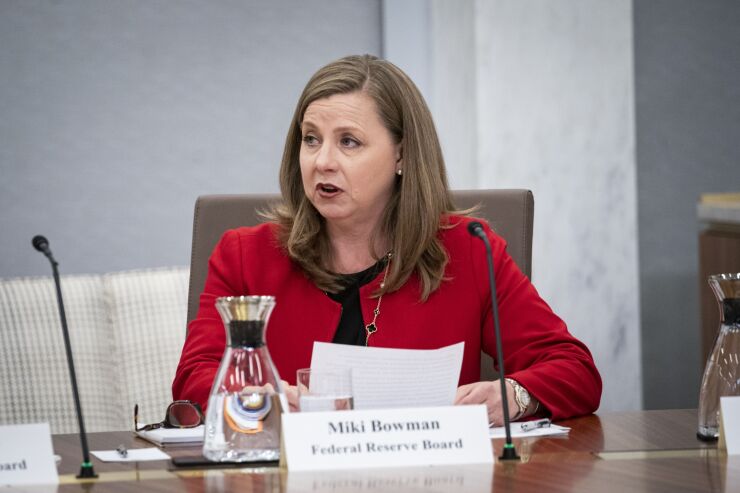
Federal Reserve Gov. Michelle Bowman further cemented herself as the
In remarks delivered on stage at the Marrakesh Economic Festival in Morocco, Bowman argued that capital requirements are "no substitute" for sufficient
"In my view, regulatory reform can pose significant financial stability risks, particularly if those changes to regulation fail to take sufficient account of the incentive effects and potential consequences," she said.
Bowman said she was not opposed to regulatory reform entirely, but noted that the focus should be on expanding the regulatory perimeter to address financial risks that have
Bowman also took aim at the Fed's supervisory practices leading up to the failure of Silicon Valley Bank, which, by
"To effectively support financial stability, bank supervision cannot simply rely on pinpointing compliance issues, failed processes or rule violations," she said. "It must go further to examine a bank's critical risk exposures while prioritizing core safety and soundness issues in the context of its financial condition."
Appointed to the Federal Reserve Board in 2018 to fill the seat reserved for someone with a community banking or state bank supervision background, Bowman has emerged as the
Bowman
She also opposed seeking comment on a proposal that would apply new resolution plan requirements to large, non-systemically important banks in August, and
During her latest speech, which aimed at addressing the management of financial stability risks globally, Bowman warned that if interest rates remain elevated for an extended period — as Fed officials have forecasted — they will likely be a "drag" on bank earnings and could hurt the credit quality of bank loan portfolios.
She also noted several risk factors that need to be monitored closely in the current environment, including the
Bowman pointed to the
"Pooled CMBS portfolios are often held in significant volumes or in concentrated shares by large insurance companies and pension plans," she said. "Should we see significant losses in their CMBS holdings, there could be broader effects on the securitization pipeline for CMBS and on the CRE market."






